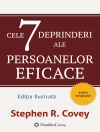This book is about the trials and tribulations of a young girls recollections of life in London in the early 1930s1940s, a young womans crippling health issues in the 1950s, and then the experience of being an immigrant to Australia in the early 1960s.
Its a remarkable story, one of survival, tenacity, and when it comes down to it, courage and determination to get on and live a life that would provide hope for the future.
Its not your usual biographical book as it contains such gems of imagination that it is actually awe-inspiring. The gift of words is not endowed to everyone but certainly attributed to June, who was able to bring her experiences to life through each page of her memoirs.
Over de auteur
The Publican’s Daughter has taken approximately two years to put together. I have no idea how many hours that would equate to as I sat, sifting through not just my mother’s diaries, which incidentally covered the events in her life in meticulous detail, but her many stories and wonderful poems that have been included, which I feel adds a depth and added value to any reader of her story.
It has been a project that has been very close to my heart as I came to learn more about my relatives, some of whom I have never met. It also clarified situations in my life that perhaps I never really fully understood or realized the huge impact that it was to have on me throughout my life.
Having immigrated to Australia when I was ten years old, my fondest memories of England would always be Dymchurch, where we spent our summer holidays with our grandmother and Aunt Ethel—idyllic days when we were ‘spoilt’ with the luxury of a beach on our doorstep and lots of fun things to do and the added luxury of sitting on Auntie Ethel’s bed every morning to hear her ‘stories’. Gran was in her sixties at that time, certainly a force to be reckoned with. However, although she was strict, we adored her.
I don’t remember what it was like living at the Princess of Wales, or Asslett Street. My first memories were of our home at Crawley. I was lucky, of course, not to have remembered those earlier years as it was obviously a time of great turmoil in our family life.
Going to Australia, although an adventure, was a ‘wrenching’ experience for someone of that age. Leaving what I had come to know as normal and embarking on a journey to the unknown was certainly unsettling.
Fifty years later, I have a family of my own—two children and, dare I say, five grandchildren. Australia is my home, but I still think of England as being my second home although I haven’t been back since the early seventies. It is time, I feel, to embark on that long-awaited holiday and enjoy places that I have never seen and those that I have fond memories of in my home country.
Over these past two years, I have come to have a greater understanding of Mother June, her feelings about past family occurrences, and how she dealt with her ‘lot’ throughout what at times was quite a tumultuous life.
We became a lot closer in that time as, with the passing of my father in December 2011 and her own health dilemmas, I spent a lot more time with her. We would talk—or should I say, my mother talked—but what she had to say was interesting as she related tales of family members.
It would have been impossible to have included ‘every detail’ in The Publican’s Daughter as, right up to the end of her life, more snippets of information came to light; however, I have had to put my foot down and say, ‘No more, the book is complete.’
June’s story is told in four parts, but in all, it covers over a century of the Powell/Pegram exploits, which can be retold due the incredible capacity of my mother to put her memories into words. She was truly an incredible character.












